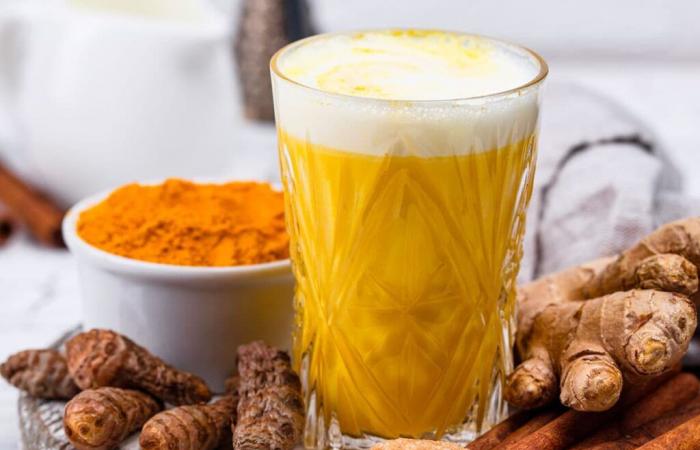Incorporating turmeric into your daily diet has become an increasingly popular health trend. This golden spice, a pillar of South Asian cuisine, has attracted the interest of researchers for decades for its multiple health benefits. Let's review together the positive effects of regular consumption of turmeric and how it can influence our long-term well-being.
The anti-inflammatory properties of turmeric
Turmeric is primarily known for its powerful anti-inflammatory properties. Curcumin, its active compoundplays a crucial role in reducing inflammation in the body. This characteristic makes it a valuable ally in the fight against many conditions linked to chronic inflammation.
According to Dr. Zhaoping Li, chief of the division of clinical nutrition at the University of California, Los Angeles, “ turmeric has a very strong anti-inflammatory effect“. She points out that low-level inflammation, a discrete response by the body to environmental and dietary stressors, is at the root of many health problems associated with aging.
Here are some of the anti-inflammatory benefits of turmeric:
- Joint pain relief
- Reduction of arthritis symptoms
- Decreased intestinal inflammation
- Improved cardiovascular health
By integrating turmeric into your daily diet, you can boost your well-being with these foods with anti-inflammatory powers and effectively prevent many chronic diseases.
Neuroprotective effects and cognitive health
Regular consumption of turmeric may have beneficial effects on neurological health. Recent studies suggest that curcumin has neuroprotective propertieswhich in fact is a potential ally in the prevention and treatment of various neurodegenerative diseases.
Neurological conditions that could benefit from the effects of turmeric include:
- Alzheimer's disease
- Parkinson's disease
- Multiple sclerosis
- Mood disorders
Dr. Li and his team are currently studying the relationship between curcumin and the gut microbiome, consequently its effects on cognitive functions. This promising research could open new perspectives in the field of brain health.
Benefits of turmeric for the skin
Daily consumption of turmeric may also have positive effects on skin health. Dr. Elyse Love, a board-certified dermatologist in New York, explains that “ Given its anti-inflammatory, antioxidant and antimicrobial effects, incorporating turmeric into your diet may be beneficial in combating skin conditions« .
Turmeric can help treat a variety of skin issues, including:
| Skin condition | Potential benefits of turmeric |
|---|---|
| Acne | Reduction of inflammation and antibacterial action |
| Eczema | Soothing itching and inflammation |
| Psoriasis | Reduction of plaques and redness |
Dr. Saami Khalifian, a board-certified dermatologist at SOM Aesthetics in California, also points out that turmeric can help protect skin against UV-induced damage. Additionally, by promoting a healthier gut microbiome, it can indirectly improve skin clarity and reduce redness.
To optimize the health of your skin, you can combine turmeric consumption with the best vitamins for hair growth according to dermatologists, thereby creating a holistic approach to beauty.
Integrate turmeric into your daily diet
Drink turmeric every day can be done in different ways. Turmeric juice is a popular option, but you can also incorporate it in powder form into your dishes or hot drinks. Here are some suggestions for easily incorporating turmeric into your daily routine:
- Prepare a turmeric latte (golden milk)
- Add fresh or powdered turmeric to your smoothies
- Incorporate turmeric into your curry recipes
- Sprinkle turmeric on your roasted vegetables
Interestingly, the absorption of turmeric is enhanced when consumed with black pepper and a fat source. This combination allows for better bioavailability of curcumin in the body.
By adopting a balanced diet that includes turmeric, you can benefit from its many positive effects on your long-term health. On the other hand, as with any change in your diet, it is recommended to consult a health professional before significantly increasing your consumption of turmeric, especially if you are taking medication or suffer from specific medical conditions.
A reaction? Leave a comment
Did you like this article? Subscribe to our free Newsletter for engaging articles, exclusive content and the latest news.






